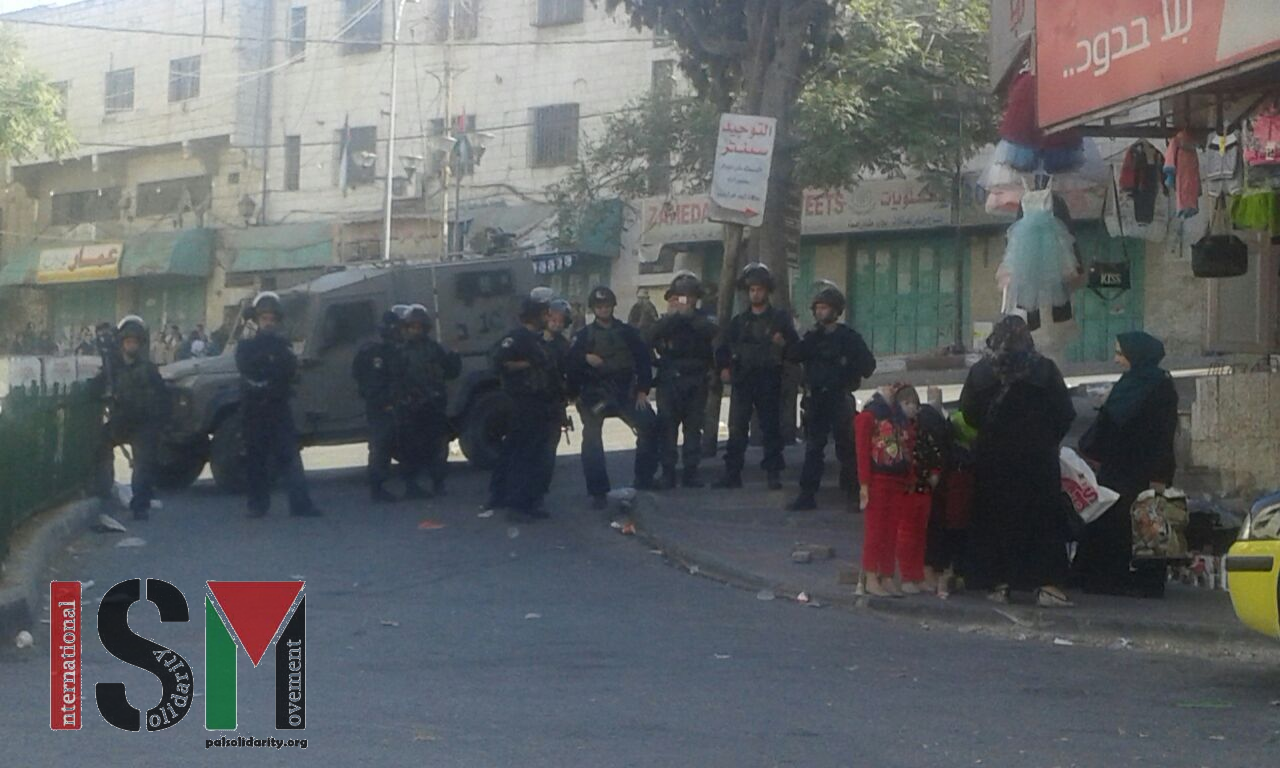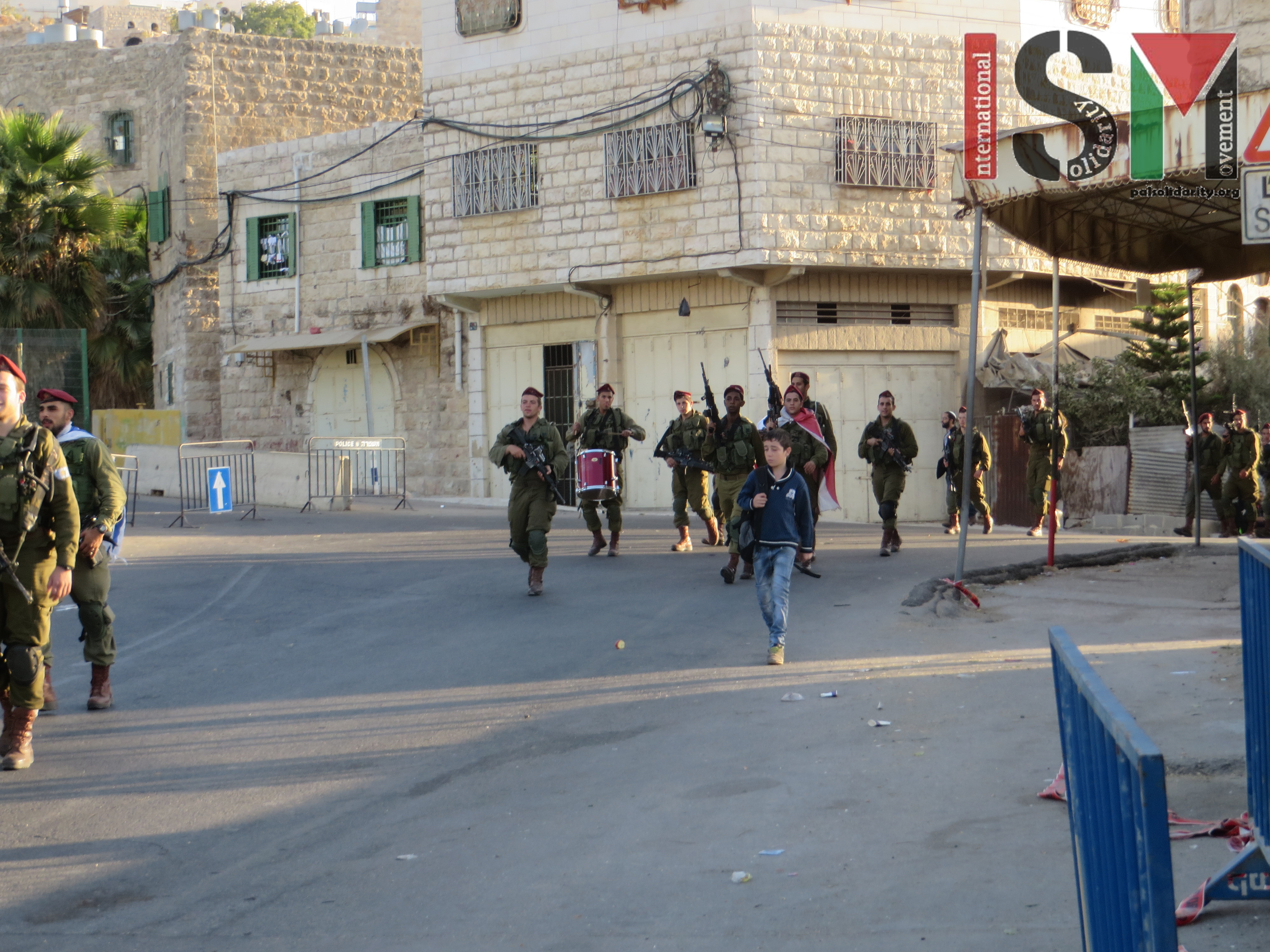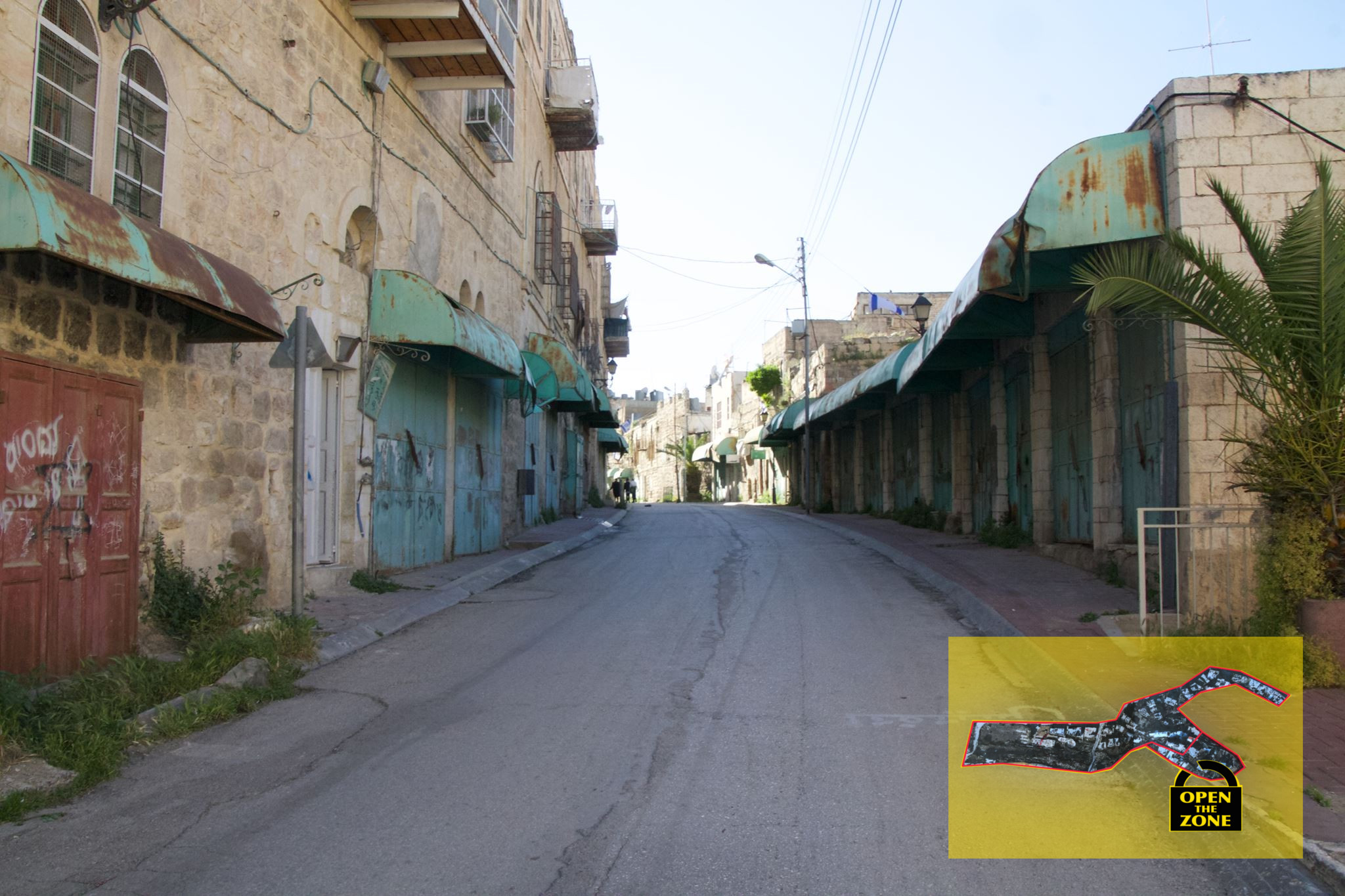Tag: Settler violence
-
Israeli forces shut down Palestinian street for Sukkot tour in occupied al-Khalil
20th October 2016 | International Solidarity Movement, al-Khalil team | Hebron, occupied Palestine Shortly after noon on October 19, Israeli Forces began congregating on the militarized H2 side of the Shuhada Street checkpoint in occupied al-Khalil. A massive gathering of international Jewish tourists and settlers from the nearby illegal Israeli settlements followed shortly after. This…
-
Photo story: Feast of intimidation, oppression and illegall annexation
2oth October 2016 | International Solidarity Movement, al-Khalil team | Hebron, occupied Palestine This past week marked the feast of Sukkot, which brought settlers from illegal settlements all over the occupied West Bank to al-Khalil (Hebron). There, with restrictions, harassment, collective punishment and intimidation of Palestinians – all in favor of the illegal settlers – the…
-
Continuing ethnic cleansing in closed military zone in Hebron
5th October 2016 | International Solidarity Movement, al-Khalil team | Hebron, occupied Palestine Israeli forces in occupied al-Khalil (Hebron) are continuously increasing their efforts of ethnic cleansing in the Tel Rumeida neighborhood. In the area, declared a ‘closed military zone’ for almost a year, Israeli forces do everything imaginable to force the Palestinian population to…



